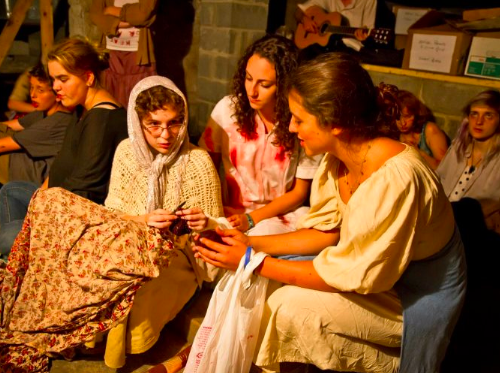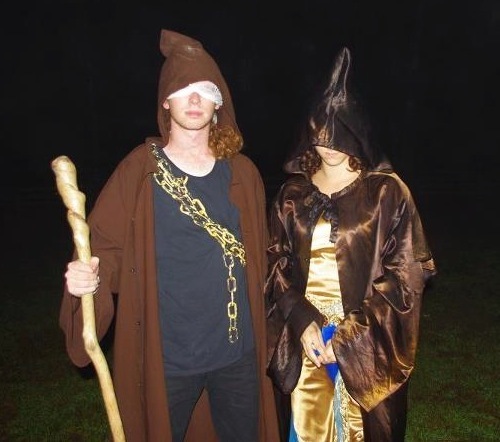Lessons From the LARP Side, Part 3: Characters

Hey, adventurers! We are back again with the third entry in our series about what I have learned from writing Live Action Roleplays. Previously, we’ve talked about the basics of gamewriting, and how to make a coherent and exciting setting. Today, at the start of the first full week of Camp NaNoWriMo, we’ll tackle one of the biggest and scariest aspects of gamewriting, and possibly of your budding novel: characters!
There’s a lot to consider when making a character, whether it be for a novel or a game. Characters are never as simple as we think they are, and they tend to get away from us, but I’ve got three steps that will help you create characters who will run with your novel, and be plot-generating machines!
Writing a character for a game is tricky, because someone else is going to be playing that character. You can write their backstory, you can write their motivations, even try to describe their personality, but in the end the choices that character makes are up to the person playing them.
Generally, when I write a character sheet, I try to keep it a page or less. Things like birthday, hair color, eye color, food preference: those aren’t as important to me. I’m more interested in concept, history, psychology, and most of all motivation.
I try to start with a defining quote, like, “You never meant to lead a country, and honestly, you’re still not sure where things went wrong.” I try to establish both the tone of the character and their core motivation or concept in that sentence. It’s not easy! Then I introduce some backstory, and write a little bit about what they’re up to right now. It’s important to figure out what I want the player to know. Once I hand the player their sheet, that’s it. It’s up to them to figure out the psychological life of this character based on the information on the page.
Writing a novel is no different. Your reader doesn’t have an inside view into your mind. They are going to react to your characters based only on what you put on that page. So if you want them to treat your characters a particular way, you’ll have to make your case on the page!
I wrote a game where this one group of characters was supposed to be the big scary villain, but I didn’t make that clear on the character sheets. I spelled out their motivations, and their backstories, but I didn’t do a very good job of setting the tone, or defining their goals. So when they showed up in game, instead of going around wreaking havoc like I’d hoped they would, they just kind of…went out for pancakes. No, really. Pancakes.

I learned my lesson, and a bunch of other tips for how to define characters while noveling, too:
1. Goals for everyone!
Every character, no matter how minor, should have a goal or motivation. This is something I learned early on in my gamewriting. Sure, it’s one thing for the dashing hero and dark lord to have a motivation, but it’s also important that the butler has a goal, and the local doctor has something to strive for. Even the blacksmith needs that extra something in her life.
2. Attainable goals, please.
If your character’s goal is to tame a unicorn, but he lives firmly in Iowa, when everyone knows unicorns are native only to the moon, that can kill momentum. Goals need to be immediate, and at least plausibly achievable. It’s much more interesting if a character wants something specific that another character has, or wants to tell someone something, or has someone they need to protect. Of course, if the goal is too easy, that’s equally boring. They need obstacles, but the goal needs to be at least vaguely within reach.
3. Pair up!
This is a slightly odder one. I find that I have the best time with my characters when they work in pairs. I give every character a counterpart. Maybe it’s a best friend, maybe it’s a lover, sibling, or sidekick, but they have to have someone. That way they’ve always got someone to talk to, someone to argue with, someone to interact with. Even if they get separated, they’ve got someone who they can’t wait to meet up with again later. I try to pair up people who are pretty different at their cores, and have interesting dynamics, so that they’ve always got interesting conversation starters. Two clones are not going to have the most thrilling debates.
Character-writing is definitely one of the most relevant parts of any story, whether it’s a novel, script, game, or whatever else. They’re not always easy to write, but vibrant characters are what we really like to fall in love with in a good story. Have fun bringing yours to life!
— Ben
Chris Baty's Blog
- Chris Baty's profile
- 63 followers



